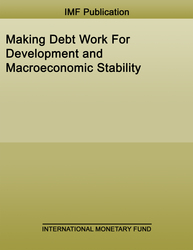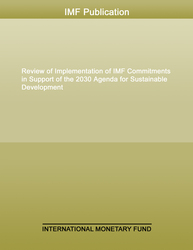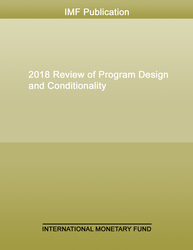
Making Debt Work For Development and Macroeconomic Stability
Making Debt Work For Development and Macroeconomic Stability
READ MORE...
Volume/Issue:
Volume 2022
Issue 019
Publication date: April 2022
ISBN: 9798400208591
$5.00
Add to Cart by clicking price of the language and format you'd like to purchase
Available Languages and Formats
| English |
Prices in red indicate formats that are not yet available but are forthcoming.
Topics covered in this book
This title contains information about the following subjects.
Click on a subject if you would like to see other titles with the same subjects.
Exports and Imports , Money and Monetary Policy , Public Finance , Political Economy , transparency policy , financing needs , IFC investment project , long-term debt , development policy financing , sustainable development finance policy , Government debt management , Debt relief , Debt sustainability , Debt service , Global
Summary
The coronavirus crisis has stiffened debt and development-related headwinds that had become strong even before 2020. Sustaining development while maintaining debt sustainability has been made harder by the protracted effects of the pandemic on public finances, earnings and employment, and human capital accumulation of vulnerable populations. The fiscal support programs financed by public debt provided relief and saved lives and livelihoods. But debt-induced uncertainty can now dampen investment and growth, especially given rising global interest rates. Bigger debt servicing burdens will reduce available fiscal space for development and stabilization and growing sovereign debt financing needs can crowd out domestic investment. Over-indebtedness can adversely affect economic development through many channels—"debt overhang,” “fiscal space,” “crowding out” and increased crisis risk —making countries vulnerable to abrupt changes in market sentiment, jeopardizing both stability and growth.
Copyright © 2010 - 2026
Powered by:
AIDC



